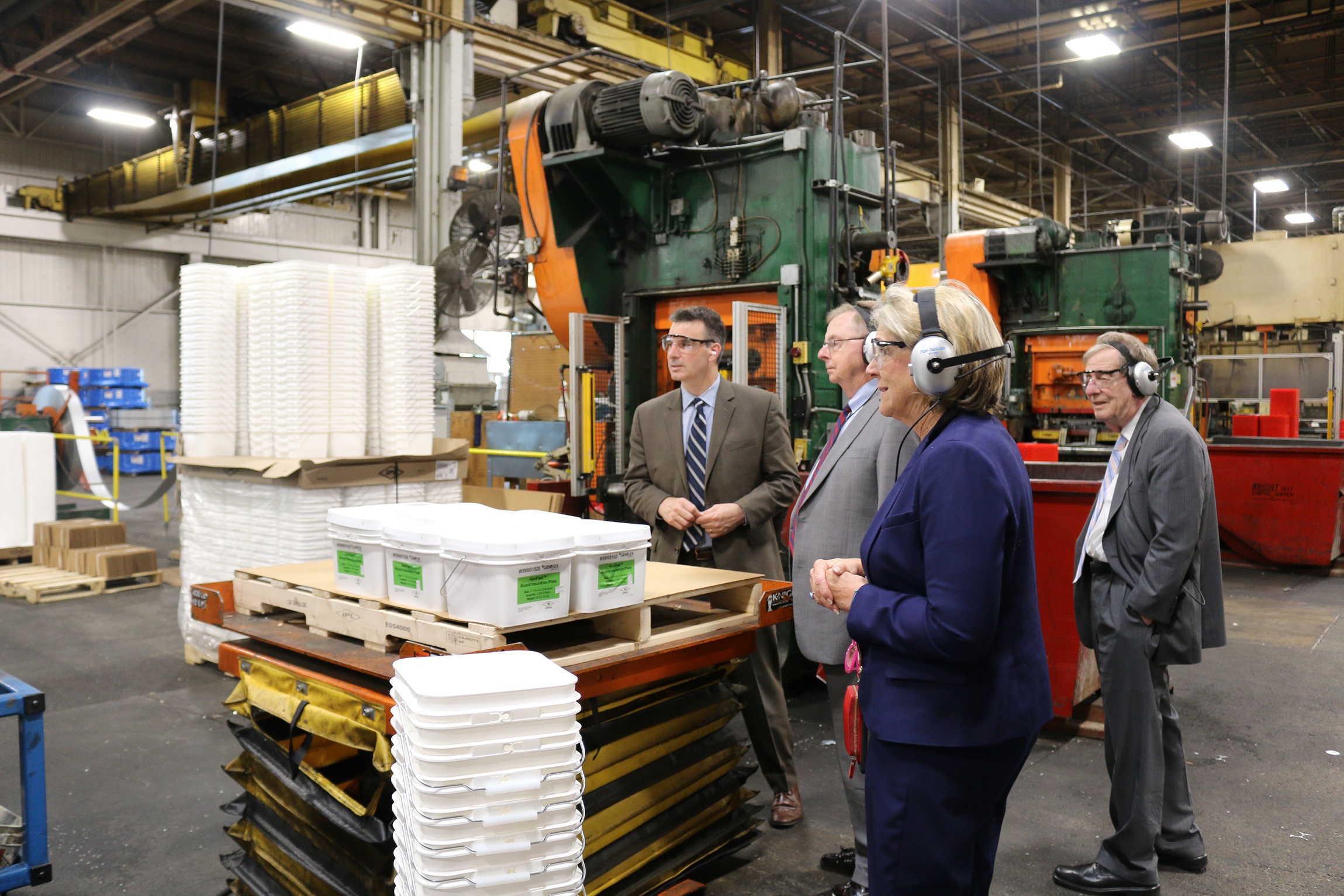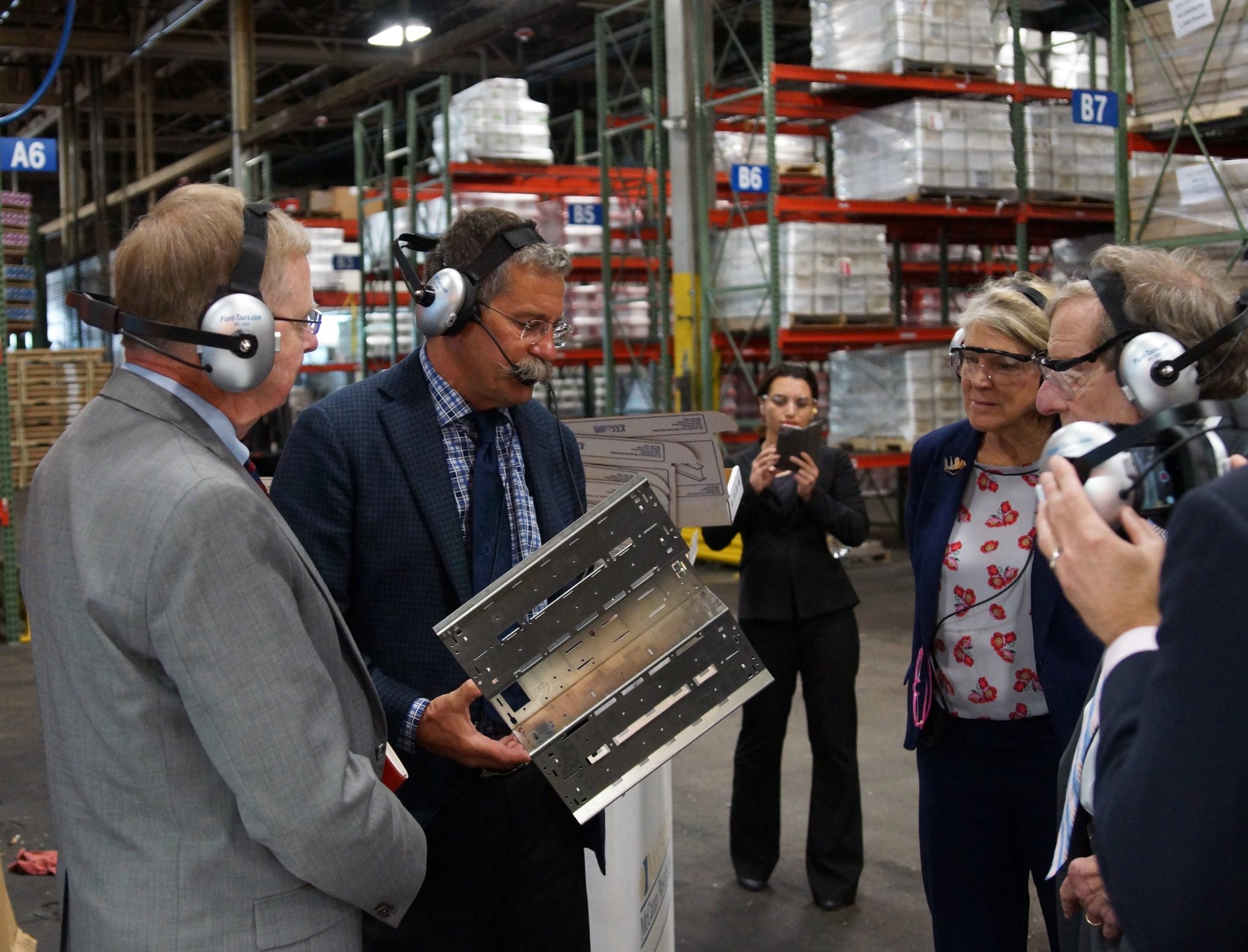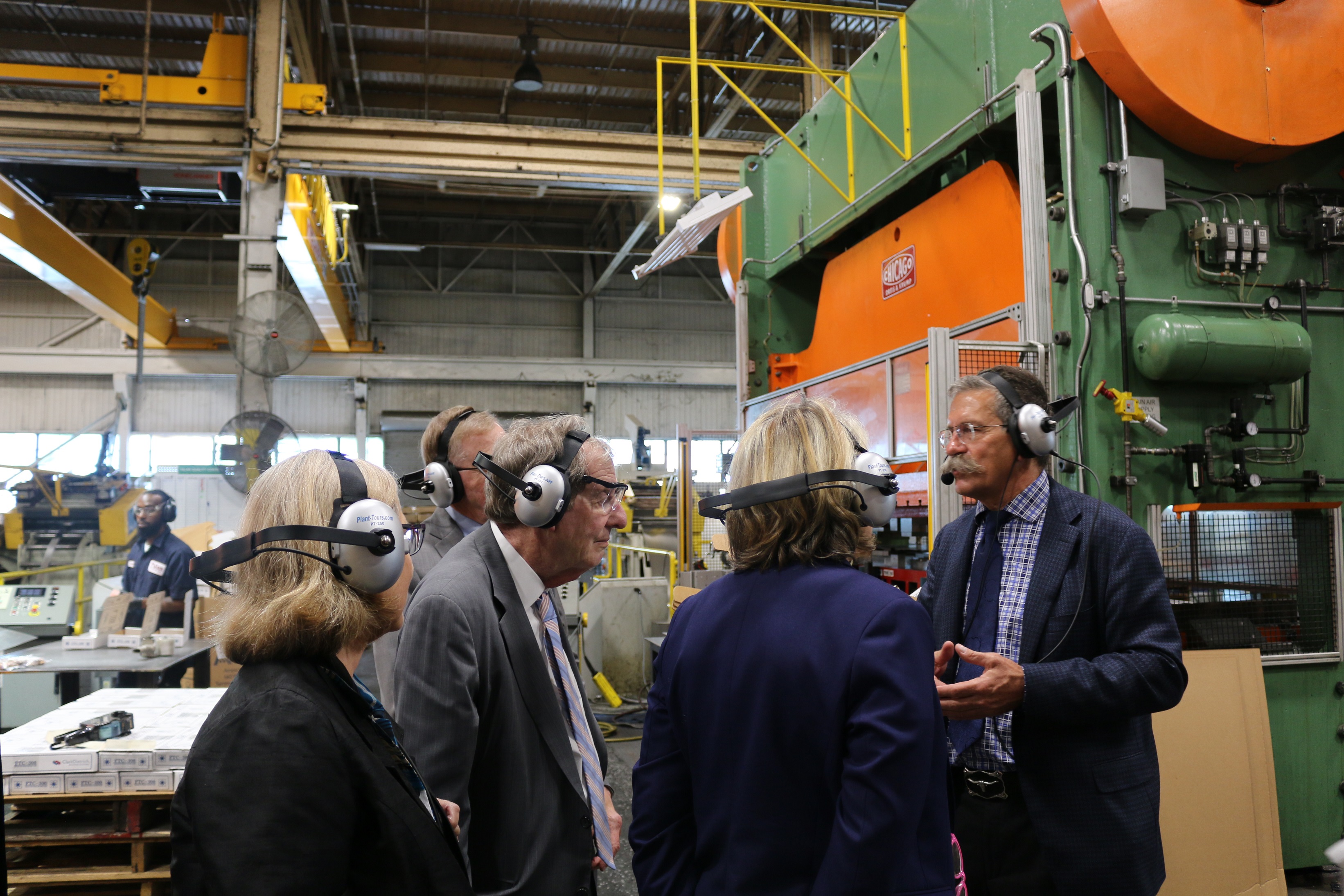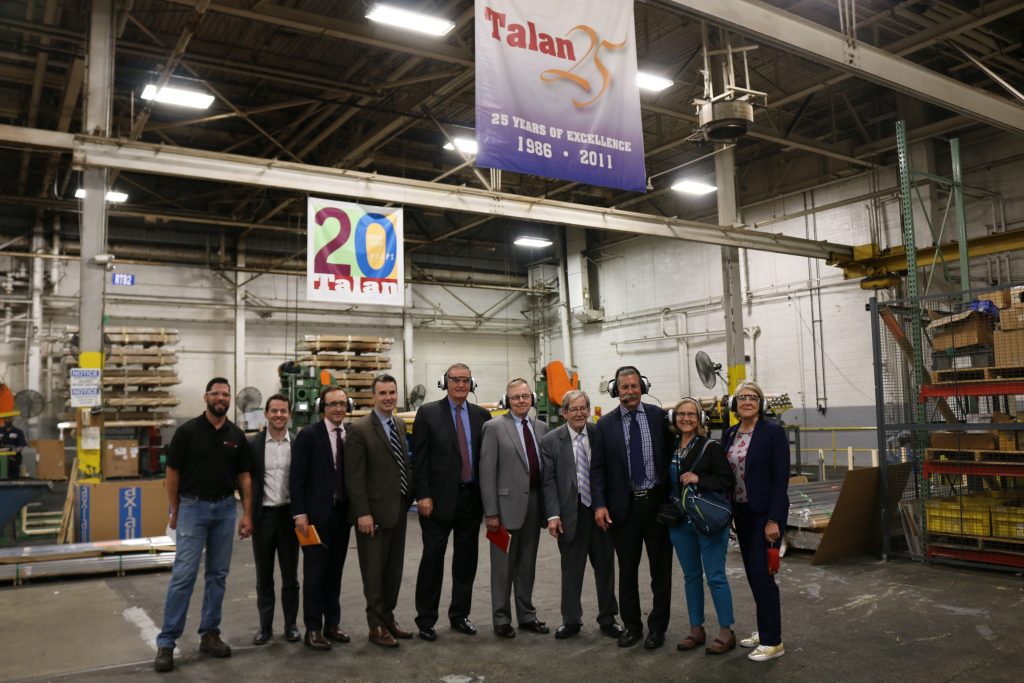An Atlantic Council Global Energy Center delegation, including General James Jones (Ret), Vice Admiral Lee Gunn (Ret), Amb. Richard Morningstar (Ret), former mayor of Cleveland Jane Campbell, and former Deputy Assistant Secretary of the Navy for Energy Joe Bryan, recently visited Cleveland, Ohio, to better understand the city’s clean energy economy and innovation ecosystem.
During the trip, the delegation visited Talan Products, a metal stamping company that produces parts for solar systems and LED bulbs, to learn how Cleveland’s manufacturing base makes it a natural location for building the infrastructure of the new energy economy.
The Global Energy Center’s David Livingston sat down to discuss Talan’s history, success, and advanced energy contributions with Steve Peplin, CEO and founder of Talan Products.
The following is an excerpt of their interview.
Q: What does Talan Products do, and how has the business evolved over the years?
Peplin: Starting off with little more than ambition, knowledge, and a single customer in 1986, Talan Products began in Cleveland, Ohio with an initial focus on metal stamping for roofing products. Since then, Talan has successfully found a significant foothold in producing components for renewable energy systems, particularly solar, and specializes in high volume progressive die stamping, as well as aluminum extrusion supply, fabrication, and assemblies.
In the last several years, we have grown from being an entrepreneurially managed company to a professionally managed company, with just under 100 employees and around $40 million in annual revenues. Talan prides itself on being a leader in workforce development in Cleveland and Northeast Ohio, on a stellar safety and quality record, and on implementing a robust energy efficiency program to become one of the most lean and competitive players in our industry, able to go toe-to-toe with Chinese metal stampers with far lower labor costs. We do this even as we spend two times the industry average on per-employee training.

Q: What was your entry into renewables manufacturing?
Peplin: In the early 2000s, Talan identified “clean-tech” and renewables as a high growth, disruptive market that had very significant commercial potential. I also had a long history in energy conservation and energy efficiency strategies in our own business, so it made sense to explore this as a growth market. While the wind power market was studied early on, it was determined that the core competencies of Talan (high volume stampings and aluminum extrusions) aligned much better with the solar mounting and LED lighting industry’s needs.
Keep in mind, “the pioneers get the arrows, and the settlers get the farmland.” The solar industry in those days was the wild west, and there are both pros and cons to that environment. Talan took its share of arrows in the early solar years. Some of our customers did not make it. Some segments of the industry also fell by the wayside. Solar thermal for residential domestic hot water was a bigger industry in America in 1982 than it is today: it definitely took one of those “arrows.”
However, as the markets evolved, Talan evolved with them.
In the early days of exploring the solar industry, solar really stood out as a perfect fit for Talan. Talan’s history is as a major supplier of metal components to the commercial roofing industry. Household solar is mounted up on the roof, often to the same customers buying our roofing products. It is a high growth industry with few established players—seems like a perfect market for us to compete in, right? It was, and today Talan is a major supplier to many of the major solar mounting system manufacturers, including residential, commercial, and utility scale systems. Talan experienced the same story of early investment and success in the LED lighting industry.

Q: To what do you attribute Talan’s success, and what does it say about the future prospects for revitalizing manufacturing in Ohio?
Peplin: Talan’s success in the renewables industry is probably due to our culture, ethics and smarts (and maybe a little luck). That said, it doesn’t hurt when your target market grows like a weed. By targeting disruptive industries, we can grow with our customers instead of fighting the rats for every crumb along the way. In other words, the rising tide lifts all boats.
Manufacturing in Ohio is thriving. This is a near perfect place to be a manufacturer. The culture, infrastructure, history, and heritage of manufacturing is all here. Geographically, Ohio is also a very good location to ship from, and we ship not only all around the United States but all around the world.
The secret is somewhat out of the bag, at least in Cleveland. For the last thirty years there has been an abundance of very low cost industrial space available. Those days are gone, industrial vacancy rates are now very low, and you are seeing increasing interest in new target industries and new opportunities.

Q: What are the major policy issues that you keep an eye on? What message do you want Washington to hear about how to grow a robust and sustainable advanced manufacturing base in Ohio?
Peplin: There is one major policy issue that is of paramount concern to me now: tariffs on imported metal, like those imposed by the Trump administration recently, threaten the metal consuming/fabricating base of companies in America. In the US, our metal is now some of the costliest in the world due to the tariffs. This would not be a huge problem for us automatically, except for the fact there is no tariff on imported metal components.
We, as a US manufacturer, must now compete with the rest of the world, and not only compete with their lower cost labor, but now the rest of the world has lower cost steel and aluminum. In our industry, the material cost (the metal) comprises 65 percent of the selling price of our final products. Obviously, a huge tariff (25 percent on steel, 10 percent on aluminum) puts us at a huge disadvantage to the rest of the world. If there was a trade barrier to imported parts, it wouldn’t be so detrimental, but there is not.
The last time broad steel tariffs were enacted in 2002, 200,000 jobs were lost in America over the next eighteen months, until the tariffs were finally repealed. One out of every five metal forming companies went out of business then. Literally 19 percent of the companies that were in a vibrant industry shut down due to the misguided tariffs. It is projected that the tariffs will grow the metal producing job base by around 26,000 workers, while incurring losses of over 430,000 jobs in the rest of the economy. To put it in perspective, 150,000 metal producing jobs are in American, while 6 million metal consuming and fabricating jobs are in America. The latter are being put at risk by these misguided tariffs.
The administration’s recent tariffs on solar panels are another big issue. Solar is still growing, but of course the tariffs caused the cost of solar modules to rise for the average consumer, which has suppressed growth for the solar industry. In other words, higher prices of course equal lower demand.
The solar industry is currently still growing in America, but it would be growing faster without the recent solar panel tariffs. One utility scale customer of ours has had their demand virtually wiped out. I can’t say definitively it was from the tariffs, but I can say it didn’t help.
Maybe there’s a deeper strategy at work here. It’s possible the White House is playing three-dimensional chess and I just don’t understand it. It’s also possible that new powers that be are just setting up the swamp to their liking.
For more on our tour of Talan Products and Cleveland’s clean energy manufacturing advantage, check out the video below:
Steve Peplin is CEO and founder of Talan Products. You can follow Talan on Twitter @TalanProducts
Image: The Atlantic Council Global Energy Center delegation and Talan CEO Steve Peplin at Talan Products in Cleveland, Ohio.
